Shawn Kay
The People's Parliament of Murillo, La Paz, Bolivia
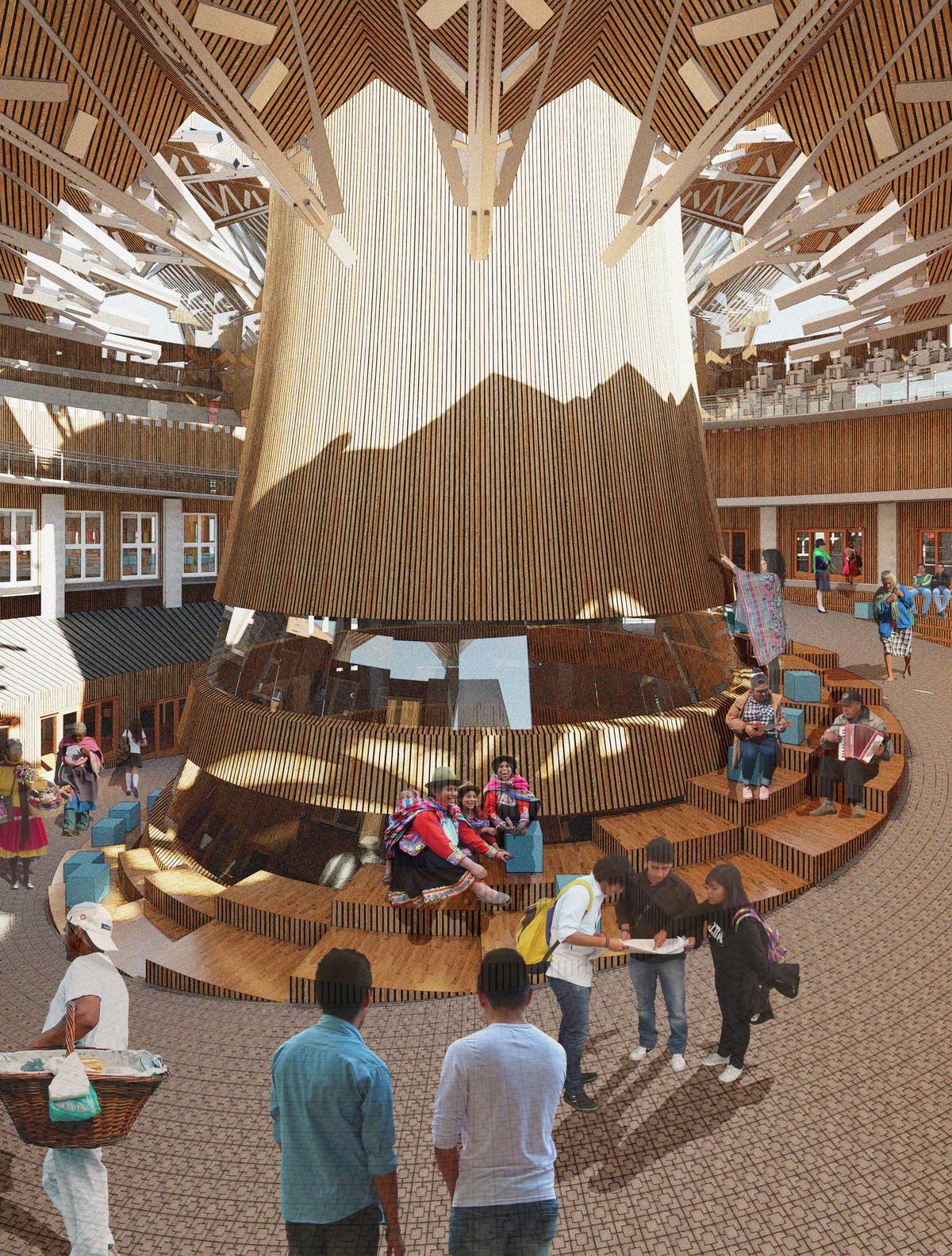
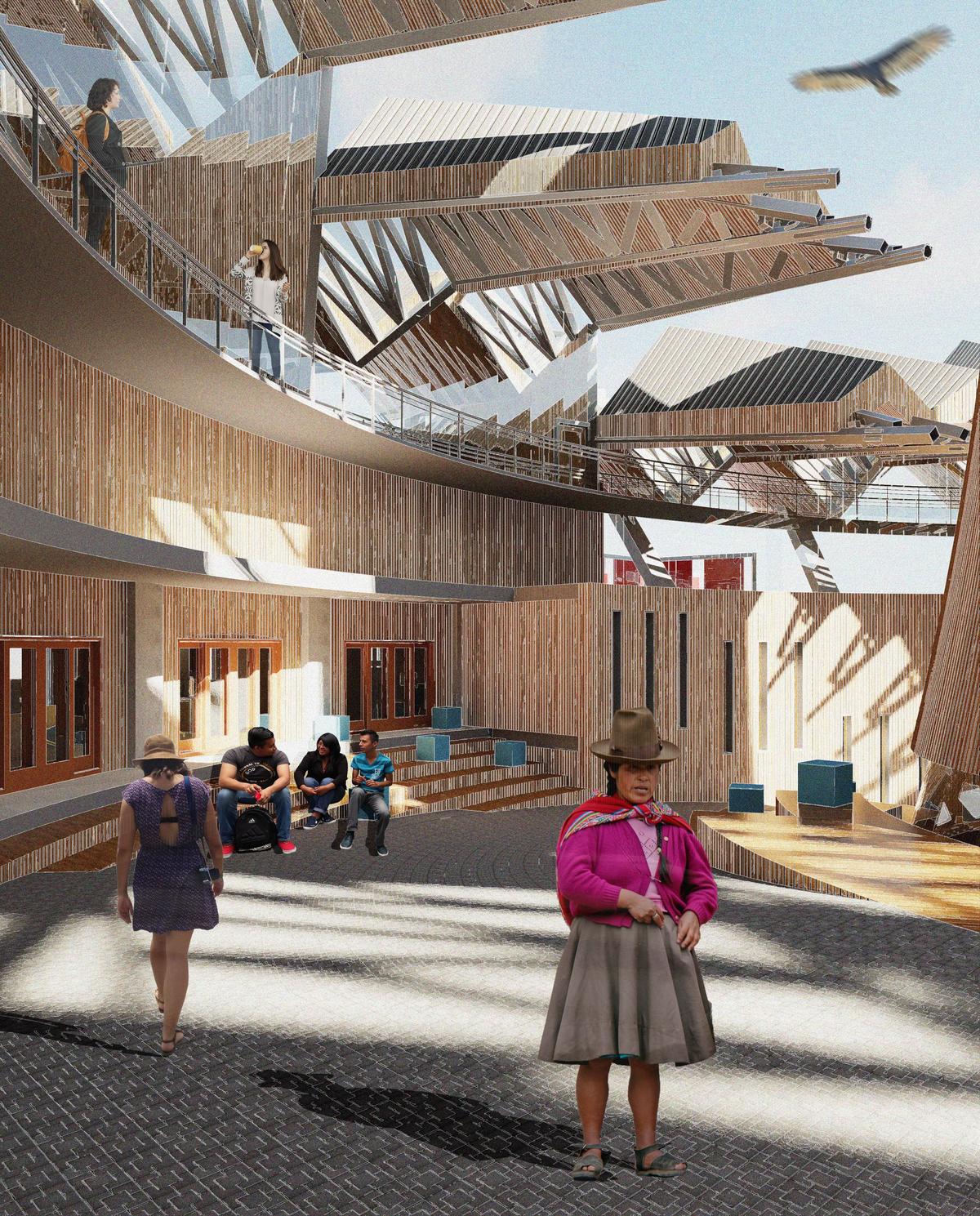
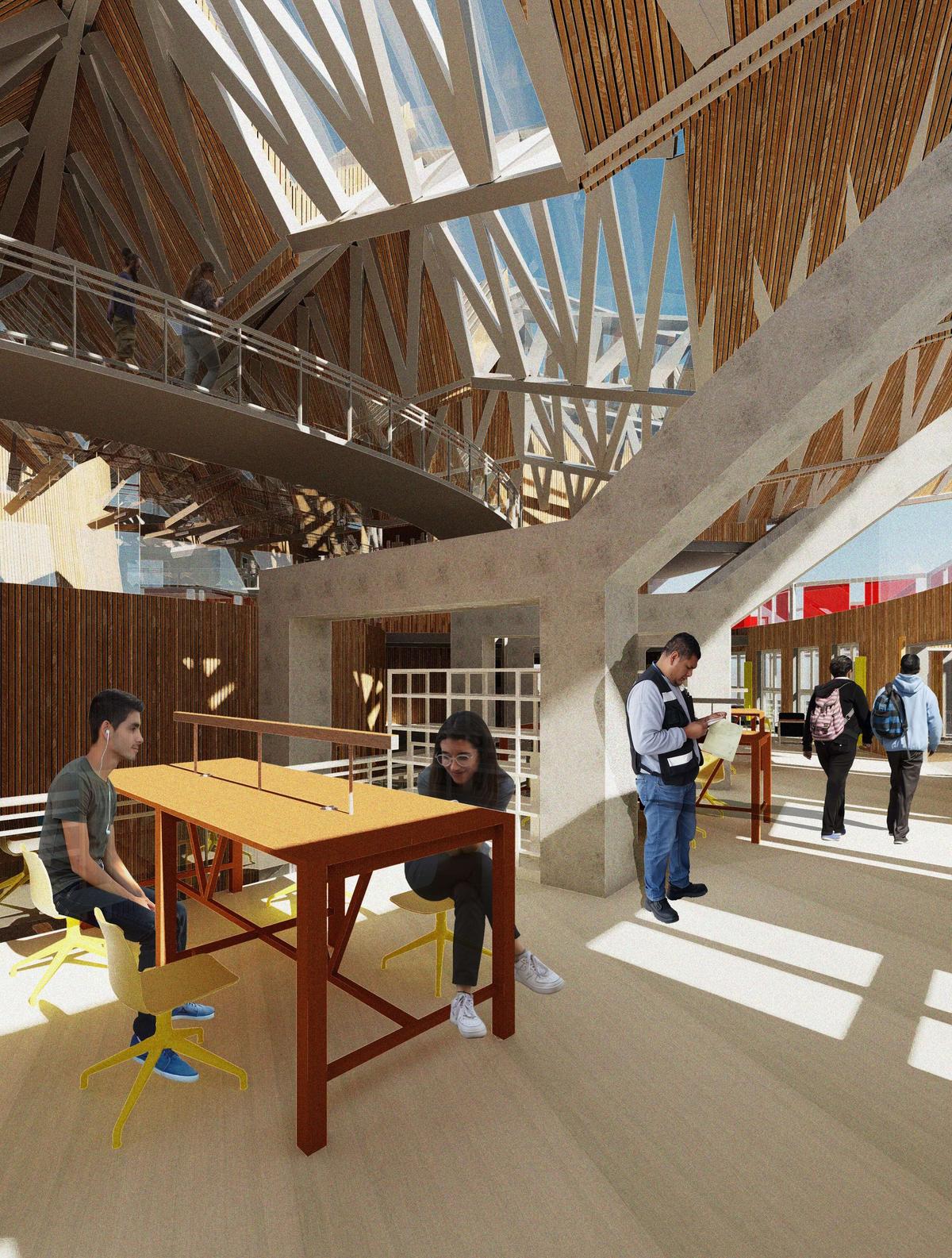
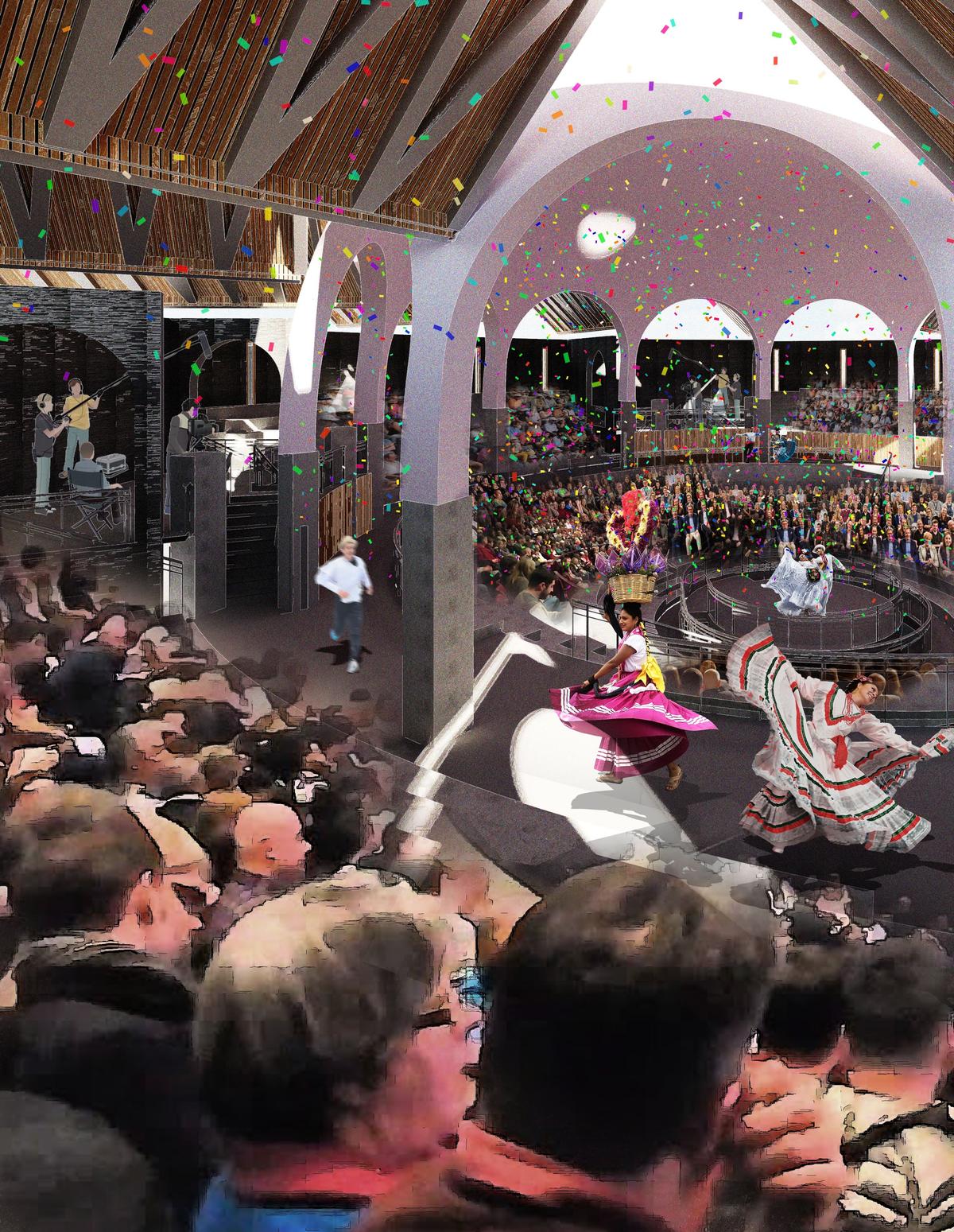
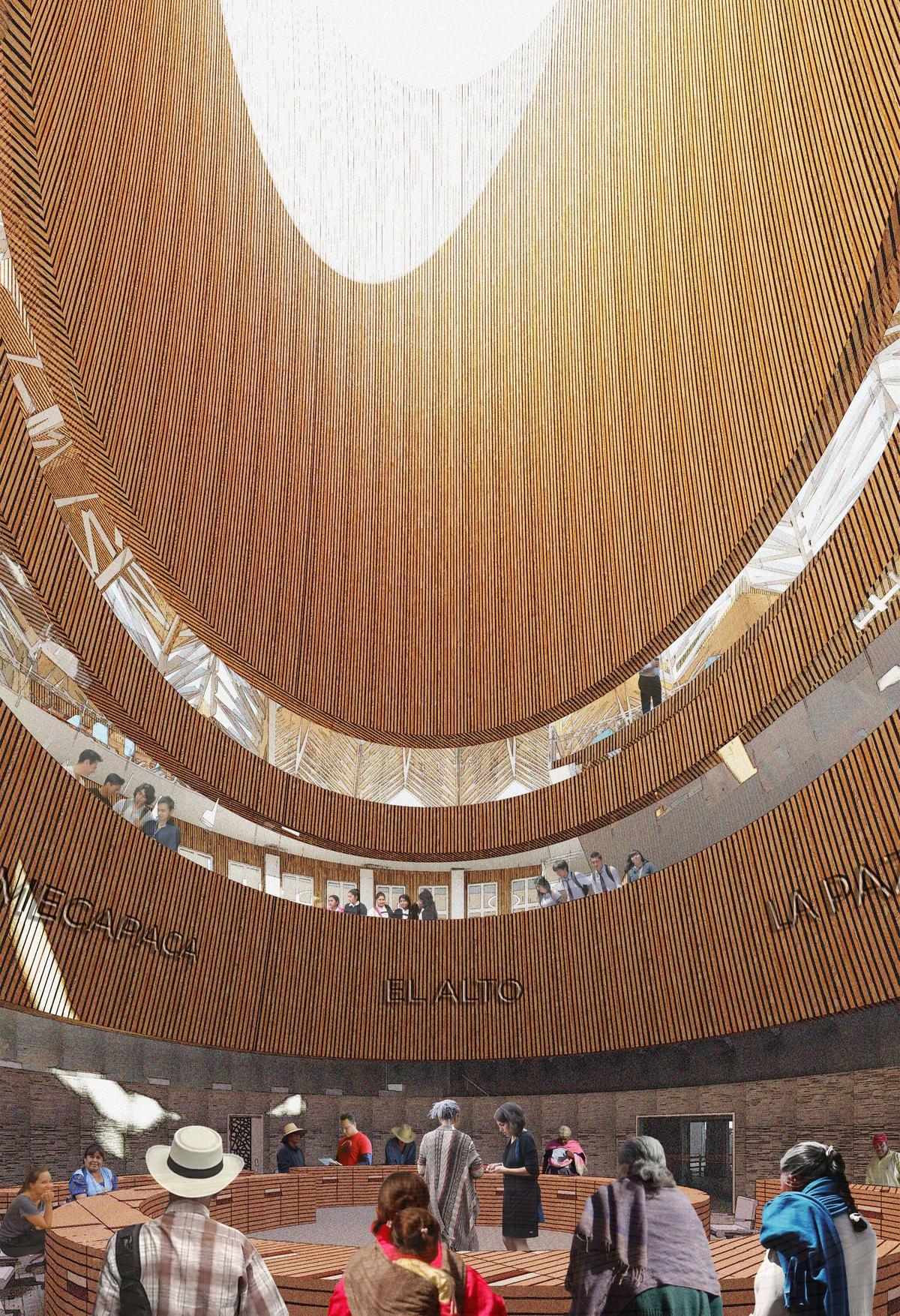
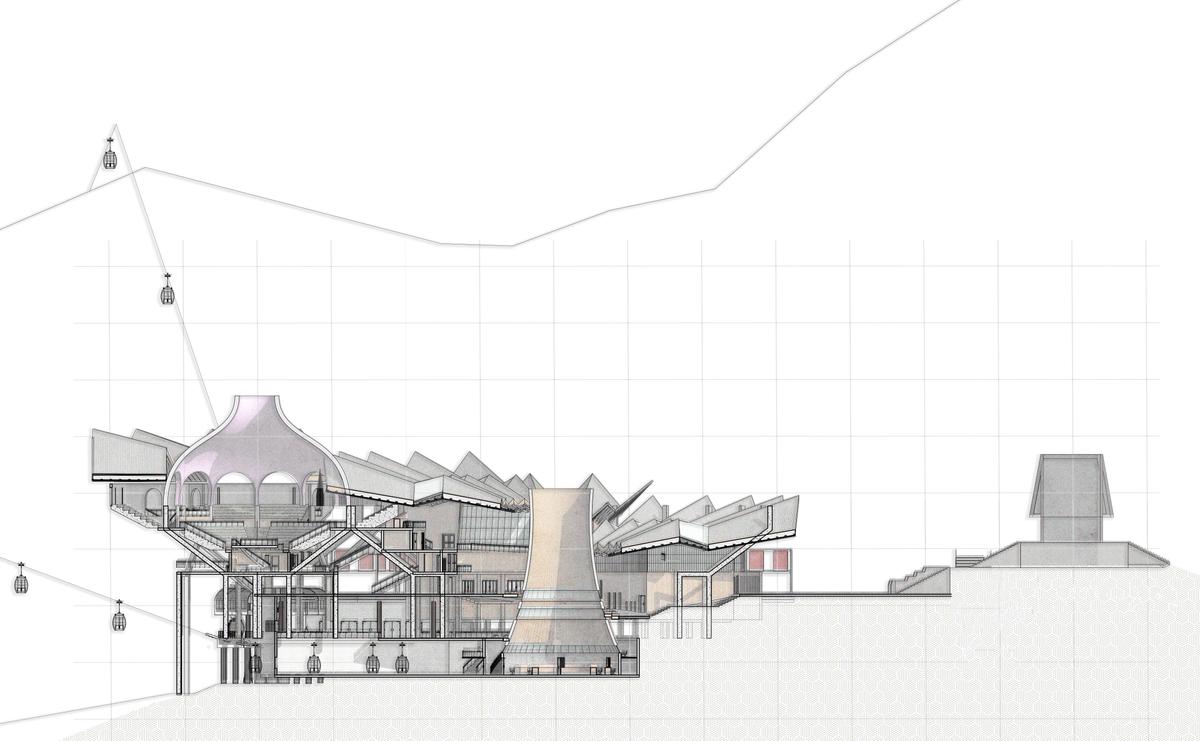
Exterior Circulation of The Core Assembly Hall
An architectural and political design thesis that proposes a platform of transparency and serves as a strategic entry point for devolving power and catalysing an anti-corrupt revolution in Bolivia.
School/Level
Category
Year
The main objectives addressed in this design proposal are (1) the close relationships between the practice of whistleblowing and human rights activism, (2) the fact that 75% of whistle-blowers in South America think they will suffer retaliation if they report corruption, and (3) the establishment of a national integrity support network for whistle-blowers across Bolivia through devolved power in provincial parliaments.
The national integrity system is an engine that cleanses a nation from corrupt activity and eventually corruption will be erased amongst political constituencies. This proposal, therefore, goes beyond corruption cleansing. It is a strategic framework that supports urbanisation, globalisation, decentralisation and democratisation. An opportunity for access to information through the expansion of assets and capabilities of poor people to participate in, negotiate with, influence, control and hold accountable the public and private sector institutions that affect their lives.
This process will promote civic engagement and public accountability. Eventually this will uncouple the practice of democracy from the construct of the nation-state and provide democracy in a more direct form to citizens. The design proposal revolves around five physical activist strategies: (1) assessment and monitoring, (2) access to information, (3) ethics, professionalism and integrity, (4) institutional reform and (5) targeting specific issues.